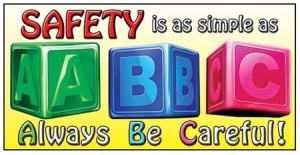What has been the point of all these netiquette themed posts? Why is it important to our blog readers?
Well, my friends, the list goes on and on. Many of my fellow writers for this blog have discussed netiquette and Social Media and how important it is to act properly by following the guidelines of proper internet etiquette. They have also blogged about how important it is for children to know how to act, how companies do not follow proper etiquette, and many other interesting etiquette based issues ( check out their posts if you have not already ). Recently I have discussed why practicing proper netiquette in your daily life can help protect you and your information from cyber criminals. Well, recently for class we had to read an article by Charles Duhigg, titled “How Companies Learn Your Secrets,” and it got me thinking- who are the real cyber criminals?
Not wanting to mislead any of my readers, I decided to do my last netiquette blog topic on how more than just criminals use the information you put out there using Web 2.0 tools. I thought this was important because this is something that everyone participates in daily AND it can happen to anyone, so why not try to help if I can?
Duhigg’s article focuses on the issue of companies using records of what you buy, what credit cards you use, surveys you fill, and the list seems never ending. Any interaction you have had with a company, his example was Target, can be documented by that company and filed away. Companies do this to create a profile so they can target you for certain items. Duhigg quoted a Target statiscian, Andrew Pole, saying ” “If you use a credit card or a coupon, or fill out a survey, or mail in a refund, or call the customer help line, or open an e-mail we’ve sent you or visit our Web site, we’ll record it and link it to your Guest ID,” Pole said. “We want to know everything we can” (1). A little scary, don’t you think!?
Well I certainly do. I was taken aback while reading this entire article (I highly suggest you read it for yourself) because I never knew these profiles and guest ID numbers existed. I felt a little violated. As I continued to read on, I learned that companies can also buy or sell information about you!
This article made me realize why practicing proper online netiquette is so important. Maybe getting extra coupons for something you buy frequently is not so bad, but it is sill a scary thought that an entire profile about your life is floating around cyber space for anyone to use, buy or steal. While researching netiquette, I learned two of the main rules are to be conservative and use discretion with the information you put out there. I think it is important for people using the internet to know these rules and apply them to their lives, as well as children who soon will be using the internet.
Obviously I think all netiquette rules are important, but after doing research for the past four weeks I feel these two are some of the most overlooked rules but some of the most important ones. Duhigg’s article really shocked and worried me because I now know how little control I have over the information I have put out there, so I also have no control over who gets to see it. If there is one thing I have learned from this topic of etiquette, it is that every day I must be careful with what I say and what information I provide, because in reality I never know who is seeing it!
